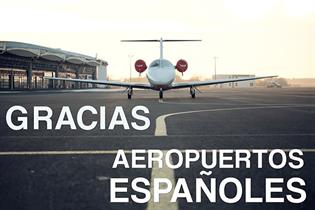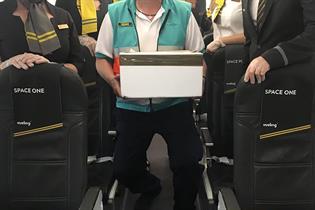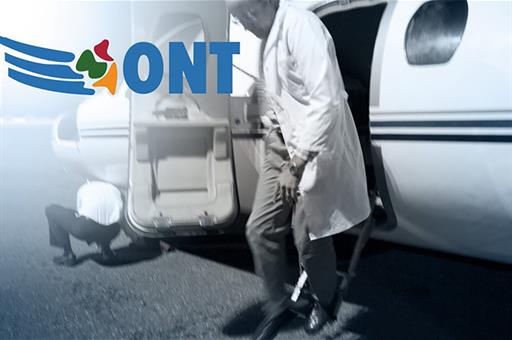One in five transplant organs managed by National Transplant Organisation transported by plane
News - 2020.7.29
Specifically, 512 medical teams travelled by air in 2019, responsible for 1,075 organs. This represents 20% of all transplants performed in the same year (5,449).
This significant increase in air travel responds to the fact that the exchange of organs between Spanish regions is becoming more frequent, involving air travel on many occasions. In this regard, 24% of organs transplanted in Spain in 2019 were donated in a different autonomous region.
In addition to the progressive increase in donation and transplant activity in our country, the introduction of such new programmes as the National Plan for Access to Kidney Transplant for Hyperimmunised Patients (Spanish acronym: PATHI), in which hospitals from practically all regions take part, has led to an increase in the exchange of organs between distant parts of the country, which has resulted in an increased use of air travel in recent years.
Out of the air despatches coordinated in 2019, private companies or air taxis participated in 598 (68%) of them, while the other 277 (31%) used scheduled flights of commercial airlines. Foreign airlines were responsible for the five remaining despatches (1%).
Collaboration between airports and the Spanish Air Force
 Spanish airports have yet again shown their full disposition in 2019 to collaborate with the ONT in undertaking donation and transplant despatches in due time and form. In 2019, 42 national airports took part in these movements, headed up by Madrid-Barajas, with 452 movements, 22% of the total, followed by Barcelona-El Prat, involved in 339 movements, accounting for 16% of the total.
Spanish airports have yet again shown their full disposition in 2019 to collaborate with the ONT in undertaking donation and transplant despatches in due time and form. In 2019, 42 national airports took part in these movements, headed up by Madrid-Barajas, with 452 movements, 22% of the total, followed by Barcelona-El Prat, involved in 339 movements, accounting for 16% of the total.
In addition, on 34 occasions air bases were asked to open outside of their conventional timetable, particularly the airports in Murcia and Cordoba, with five and six extraordinary extensions respectively. In addition, 124 despatches required airports to extend their normal operating hours. Murcia was again the most prevalent in this regard, with 17 interventions of this nature, followed by Leon (14) and A Coruña (12).
Furthermore, the collaboration of military bases of the Spanish Air Force was necessary for transplant despatches on 128 occasions over the course of 2019.
Operations outside of Spain
Of the total number of operations performed last year, five were managed by third countries and organised by foreign airlines, in the context of the international exchange of organs with Spain.
In addition, 16 foreign airports took part in a total of 35 despatches coordinated by the ONT for Spanish transplant hospitals. The two airports that took part in the largest number of despatches were Porto on 11 occasions and Lisbon on seven, thanks to Spain's close collaboration with Portugal on transplants.
55% increase in organs transported by air
 As regards the number of transplant organs transported by air, this figure has risen by 55% in three years, from 695 organs in 2016 to 1,075 in 2019.
As regards the number of transplant organs transported by air, this figure has risen by 55% in three years, from 695 organs in 2016 to 1,075 in 2019.
By type of organ, the largest rise took place in the transport of lungs, rising from 132 to 283, which means the figure more than doubled in just three years. After lungs, the air transport of kidneys has grown by 64% and of livers by 42%.
Of the 1,075 organs transported in 2019, these were accompanied by a medical team on 512 occasions (48% of the total), while on 563 occasions (52%), the organs, once extracted, travelled in specifically prepared fridges. It is noteworthy that kidneys are always transported in fridges, while hearts are always accompanied by a medical team.
Commercial airlines, allies of the ONT
The transport of organs on scheduled flights is becoming more consolidated as a good alternative in those cases in which the characteristics of the transplant and the operation so permits.
With 277 transfers in 2019, these procedures have increased by 50% since 2016. For their part, despatches with private airlines have also increased, in this case by 28% since 2016.
The ONT is grateful for the selfless collaboration of the airlines Vueling, the Iberia Group - Iberia, Iberia Express and Air Nostrum - and Air Europa, which allow organs to be transported free of charge on their commercial flights.
Non official translation





